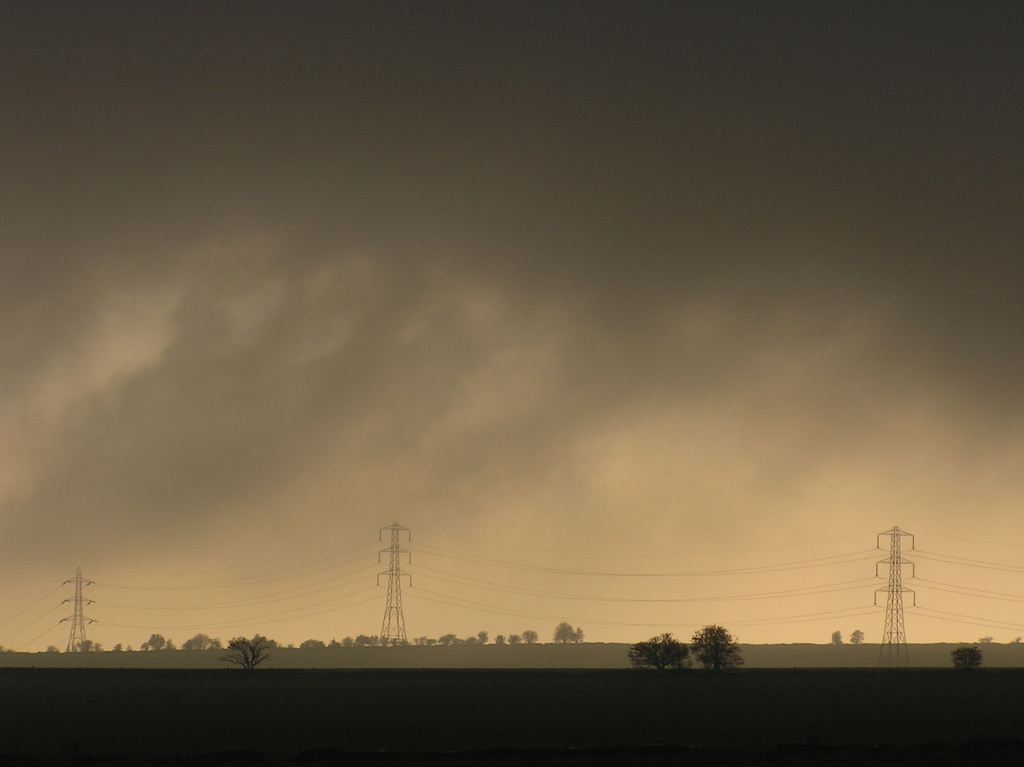Click here and press the right key for the next slide (or swipe left)
also ...
Press the left key to go backwards (or swipe right)
Press n to toggle whether notes are shown (or add '?notes' to the url before the #)
Press m or double tap to slide thumbnails (menu)
Press ? at any time to show the keyboard shortcuts

✓
?
How can we acquire knowledge about the essential nature of the bodies located outside us?
Sensory perceptions provide only very obscure information about the essential nature of bodies.
∴ Not by treating sensory perceptions as a basis for judgements about them.

The World: Light and Sound
‘In putting forward an account of light, the first point I want to draw to your attention is that it is possible for there to be a difference between the sensation that we have of it, that is, the idea that we form of it in our imagination through the intermediary of our eyes, and what it is in the objects that produces the sensation in us, that is, what it is in the flame or in the Sun that we term ‘light’’
Descartes, The World (AT 3)
The perceptual sensation of light is nothing like light itself.
Therefore, sensory perceptions provide only very obscure information about the essential nature of bodies.
words
‘bear no resemblance to the things they signify’
‘yet they make us think of those things’
laughter & tears
bear no resemblance to joy or sadness
yet ‘make us read joy and sadness on faces’
sensations
‘why could nature not also have ’stablished some sign
which would make us have the sensation of light
even if the sign contained nothing in itself which is similar to the sensation?’
Words and expressions of emotion make us think of things which they do not resemble.
Therefore, sensory perceptions need not resemble the things they make us think of.

How can we acquire knowledge about the essential nature of the bodies located outside us?
Each body has a form, which is its essential nature.
When a body is perceived, its form thereby enters the mind.
When a body is perceived, your sensory perception resembles the body’s form.
Thanks to this resemblance, your sensory perception acquaints you with the forms (essential natures) of bodies.
a further argument
‘Do you think that, when we attend solely to the sound of words without attending to their signification, the idea of that sound which is formed in our thought is at all like the object that is the cause of it?
A man opens his mouth, moves his tongue, and breathes out:
I see nothing in all these actions which is in any way similar to the idea of the sound that they cause us to imagine.
And most philosophers maintain that sound is only a certain vibration of the air striking our ears.
Thus if the sense of hearing transmitted to our thought the true image of its object, then instead of making us think of the sound, it would have to make us think about the motion of the parts of the air that are vibrating against our ears.’
Sound is only a certain vibration of the air striking our ears.
The sensory perception of sound is nothing like vibration of the air.
Therefore, sensory perceptions do not in general resemble their causes.

How can we acquire knowledge about the essential nature of the bodies located outside us?
Each body has a form, which is its essential nature.
When a body is perceived, its form thereby enters the mind.
When a body is perceived, your sensory perception resembles the body’s form.
Thanks to this resemblance, your sensory perception acquaints you with the forms (essential natures) of bodies.
?
How can we acquire knowledge about the essential nature of the bodies located outside us?
Sensory perceptions provide only very obscure information about the essential nature of bodies.
∴ Not by treating sensory perceptions as a basis for judgements about them.
Method:
Identify a kind of sensory perception
Investigate the essential nature of its causes
Establish whether there is resemblance

sensory perceptions
do not resemble
their causes
‘I have not brought up these examples to make you believe categorically that the light in the objects is something different from what it is in our eyes
I merely wanted you to suspect that there might be a difference’
Descartes, The World (AT IX:6)
The usefulness of extensive doubt ‘lies in freeing us from our preconceived opinions, and providing the easiest route by which the mind may be led away from the senses.’
Meditations (Synopsis)
The World vs The Meditations
Why is the argument of The Meditations so different?
Descartes only thought of this argument later.
1629 begins work on The World
1633 Galileo condemned by the Church; abandons The World
1639 begins work on The Meditations; solicits approval of clergy
1641 publication of The Meditations
1663-1960 Descartes’ key works on the Index of Prohibited Works
The World vs The Meditations
Why is the argument of The Meditations so different?
Descartes only thought of this argument later.
Publishing The World would have got Descartes banned.

Doubt
?
How can we acquire knowledge about the essential nature of the bodies located outside us?
Sensory perceptions provide only very obscure information about the essential nature of bodies.
∴ Not by treating sensory perceptions as a basis for judgements about them.
That we have grounds to doubt something
doesn’t imply we know it is false ...
... but only that we have reason to withhold assent.
Argument ideas from Meditation 1
The senses sometimes deceive us
My brain may be ‘damaged by the persistent vapours of melancholia’
The dream argument
The deceiving God hypothesis
Cosmic deception
‘I see plainly that there are never any sure signs by means of which being awake can be distinguished from being asleep’
Meditation 1
‘... the principal reason for doubt, namely my inability to distinguish between being asleep and being awake. For ... there is a vast difference between the two, in that dreams are never linked by memory with all the other actions of life
‘when I distinctly see where things come from and where and when they come to me, and when I can connect my perceptions of them with the whole of the rest of my life without a break, then I am quite certain that when I encounter these things I am not asleep but awake.’
Meditation 6
‘reasons are provided which give us possible grounds for doubt about all things, especially material things, so long as we have no foundation for the sciences other than those we have had up until now’
Synopsis
What are these reasons?
Do any considerations about dreaming provide such reasons?
Argument ideas from Meditation 1
The senses sometimes deceive us
My brain may be ‘damaged by the persistent vapours of melancholia’
The dream argument
The deceiving God hypothesis
Cosmic deception
‘How do I know that he has not brought it about that there is no earth, no sky, no extended thing, no shape, no size, no place, while at the same time ensuring that all these things appear to me to exist just as they do now?
What is more, since I sometimes believe that others go astray in cases where they think they have the most perfect knowledge, may I not similarly go wrong every time I add two and three or count the sides of a square, or in some even simpler matter, if that is imaginable?’
Is this a reason to doubt all things?
You are not in a position to know that you aren’t cosmically deceived
You do know this: if you are drinking coffee, then you are not cosmically deceived
Suppose you knew you were drinking coffee.
Then you would be in a position to know you are not cosmically deceived
Therefore you couldn’t know you are drinking coffee
?
How can we acquire knowledge about the essential nature of the bodies located outside us?
Sensory perceptions provide only very obscure information about the essential nature of bodies.
∴ Not by treating sensory perceptions as a basis for judgements about them.
obscure -> does not enable you to know you aren’t cosmically deceived
not obscure (clear?) -> does enable you to know you aren’t cosmically deceived
For all your sensory perceptions reveal, you are not in a position to know that you aren’t cosmically deceived
Therefore, sensory perceptions provide only very obscure information about the essential nature of bodies.
‘I have not brought up these examples to make you believe categorically that the light in the objects is something different from what it is in our eyes
I merely wanted you to suspect that there might be a difference’
Descartes, The World (AT IX:6)
The usefulness of extensive doubt ‘lies in freeing us from our preconceived opinions, and providing the easiest route by which the mind may be led away from the senses.’
Meditations (Synopsis)

conclusion
?
How can we acquire knowledge about the essential nature of the bodies located outside us?
Sensory perceptions provide only very obscure information about the essential nature of bodies.
∴ Not by treating sensory perceptions as a basis for judgements about them.